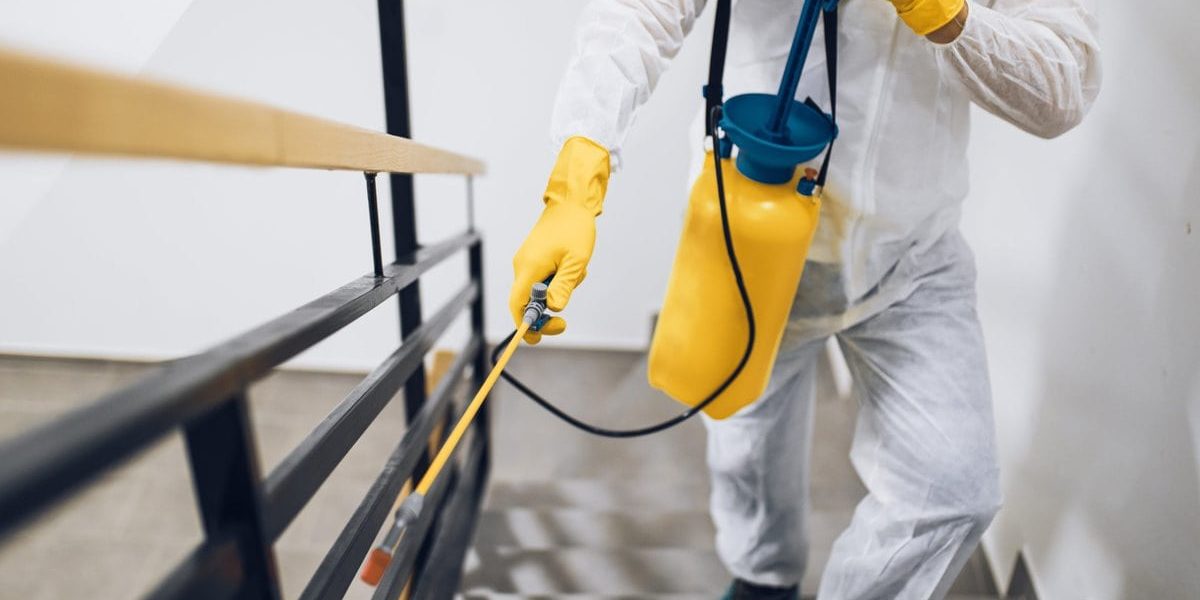Specialist Exterminator Services: Bid Farewell to Pests for Good!
Wiki Article
Professional Insect Control Techniques for Long-Term Outcomes
In the realm of insect control, attaining sustained effectiveness and long-lasting results calls for a thorough strategy that goes beyond mere elimination. Specialist parasite control strategies envelop a detailed technique that begins with an extensive examination and analysis, adhered to by exact insect identification to comprehend their habits patterns. The application of Integrated Bug Monitoring (IPM) concepts, coupled with eco-conscious therapies, creates the keystone of lasting insect eradication. Nevertheless, real test hinges on the recurring monitoring and maintenance of the treated areas, ensuring a pest-free atmosphere for the foreseeable future. By delving into the complexities of these methods, a deeper understanding of specialist bug control techniques for enduring outcomes emerges.Inspection and Evaluation
Upon entering a property for pest control services, the initial action is a comprehensive examination and assessment to identify the extent of the problem and establish one of the most efficient therapy plan. Professional bug control professionals are trained to meticulously take a look at the facilities, seeking indicators of bug task such as droppings, chomp marks, nests, or any kind of structural damages. They will also examine the problems that may be attracting bugs, such as food resources, water leakages, or entry points.
Insect Recognition and Habits

In addition, comprehending the behavior of the determined pest is crucial to executing reliable control actions. Recognizing where parasites nest, what they feed on, and their task patterns can assist pest control specialists create techniques to eradicate them effectively.
Integrated Insect Management (IPM)
Integrated Insect Administration (IPM) approaches integrate several methods to regulate and stop bug invasions in a sustainable and eco-friendly fashion. bed bug heat treatment. By integrating techniques such as biological control, habitat control, alteration of social methods, and using resistant selections, IPM aims to minimize making use of chemical pesticidesAmong the crucial concepts of IPM is the focus on prevention. This proactive strategy includes surveillance termite removal service parasite populations frequently to identify any type of potential issues before they rise. By identifying parasite issues early on, pest control steps can be applied promptly and successfully.
Furthermore, IPM promotes using non-toxic insect control approaches whenever possible. This can consist of using natural killers of the bugs, introducing useful pests, or making use of scents to interrupt breeding patterns. By decreasing reliance on chemical pesticides, IPM not just secures the setting but likewise helps maintain a balance in the environment.
Environmentally-Friendly Therapies
Applying eco-conscious strategies in parasite control procedures can successfully attend to infestations while prioritizing environmental sustainability. Environmentally-friendly treatments concentrate on minimizing the influence of parasite control approaches on communities, non-target microorganisms, and human health. These methods frequently entail making use of all-natural killers, such as ladybugs or nematodes, to manage pest populations, decreasing the need for chemical treatments. Furthermore, techniques like habitat manipulation, such as readjusting moisture degrees or eliminating carpenter ants pest control food resources, can aid prevent pests without using hazardous compounds.One more trick element of environmentally-friendly therapies is making use of organic and biodegradable products that break down swiftly without leaving unsafe deposits in the atmosphere. Organic pesticides originated from plants like chrysanthemums or neem use efficient bug control while presenting very little risk to non-target types. Using approaches like warm treatments or pheromone catches can target particular insects with precision, reducing the general ecological influence of pest control techniques.
Continuous Monitoring and Maintenance
Routine examinations by experienced professionals are required to recognize any indications of bug activity, examine the performance of previous treatments, and make adjustments to the pest control strategy as required. By checking bug populations over time, parasite control professionals can track fads, prepare for possible problems, and carry out preventative procedures to reduce the danger of future infestations.
Along with monitoring, upkeep practices are crucial for lasting parasite control success. This consists of executing correct sanitation actions to get rid of potential food and water sources for parasites, sealing entrance factors to protect against bugs from ant prevention going into the premises, and addressing any kind of architectural issues that could assist in pest invasions (exterminator near me). By including continuous surveillance and maintenance into an integrated bug management strategy, companies can guarantee a pest-free setting and guard their home versus costly damage and wellness risks
Final Thought
To conclude, utilizing expert bug control techniques such as thorough inspection and evaluation, precise parasite recognition and understanding of their actions, incorporated parasite administration techniques, environmentally-friendly treatments, and continuous tracking and upkeep are important for achieving lasting cause bug control. By executing these techniques, people can efficiently manage parasite infestations and preserve a pest-free setting in a lasting manner.Report this wiki page